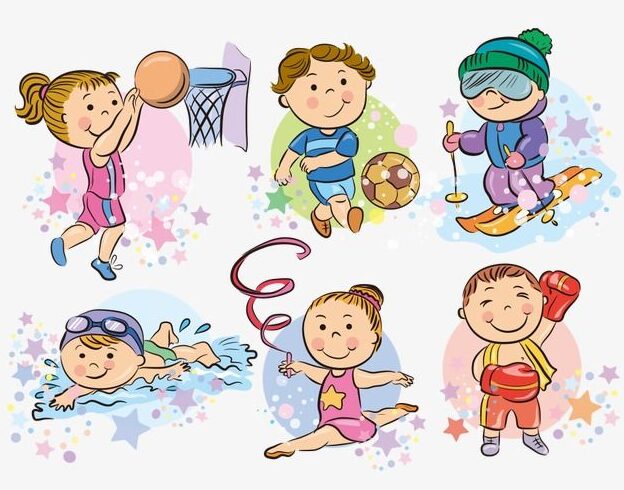The importance of play and exercise in the lives of young children offers them several advantages, many of which continue to have a favorable influence far into adulthood. In this essay, we will investigate these benefits and emphasize the necessity of fostering play and physical exercise in youngsters.
Physical Fitness and Development
Exercise is a key component of maintaining a healthy and developing body, particularly in youngsters. As individuals journey from infancy to maturity, their bodies experience significant changes. Engaging in regular physical exercise throughout childhood helps prepare them for the physical demands of adulthood. It establishes the foundation for a lifetime of excellent health.
When youngsters play and participate in physical activities, they develop strong muscles and bones. These physical advantages contribute to their overall well-being, ensuring they have the strength and stamina necessary for everyday tasks.
Social Skills and Teamwork
Play takes various forms, including unstructured play, organized sports, and group activities. All three types of play provide opportunities for children to interact with their peers and acquire crucial social skills. Through play, students learn how to work as a team, collaborate, and communicate effectively with others.
In today’s interconnected world, these social skills are essential. As children grow and eventually enter the workforce, the ability to communicate, solve problems, and build strong relationships becomes vital for success. Play establishes the foundation for many critical life skills.
Read also: Building Character: The Importance of Good Habits for Children
Mental and Emotional Well-being
Play is not only about physical exercise; it also stimulates the mind and contributes to emotional well-being. Children learn how to express themselves, develop their imagination, and manage various emotions during play. It provides a safe space for individuals to process their thoughts and experiences.
Furthermore, play helps children develop resilience. They learn to adapt to different situations, solve problems, and confront challenges head-on. These coping skills acquired during play serve children well throughout their lives, enabling them to navigate the ups and downs of adulthood with confidence.
Understanding Limits and Boundaries
Children are naturally curious and adventurous. Play allows individuals to stretch their boundaries, test their limits, and discover their abilities. During play, children often push themselves physically and cognitively, surpassing what they initially thought was possible.
This process of recognizing their limits is crucial for personal growth and development. It helps children distinguish between genuine boundaries and perceived ones. Children discover that they are capable of more than they initially believed, boosting their self-esteem and self-confidence.
Maintaining a Childlike State of Mind
As adults, we often become consumed by the responsibilities and challenges of everyday life. We tend to overlook the simple joys and simplicity of play. Children, on the other hand, possess a unique ability to maintain a childlike mindset, where the world is full of wonder and potential.
The stresses and anxieties that affect adults have a lesser impact on children. They live in the present, savoring each opportunity for play and exploration. This ability to stay connected with their inner child can be a source of joy and resilience throughout their lives.
In conclusion, the benefits derived from exercise and play during childhood are invaluable and have a lifelong impact. As adults, we often underestimate the significance of both exercise and play in a child’s life. It’s crucial to remember that, at their age, children require play and social interaction to nurture their young minds and bodies.
Encouraging play and physical exercise in children is not only about keeping them physically healthy; it’s about nurturing well-rounded individuals who are emotionally resilient, socially adept, and psychologically equipped to tackle the challenges of adulthood. So, the next time a child returns from play, exhausted and joyful, remember that they’ve been engaged in one of the most crucial aspects of their development—the art of play.




